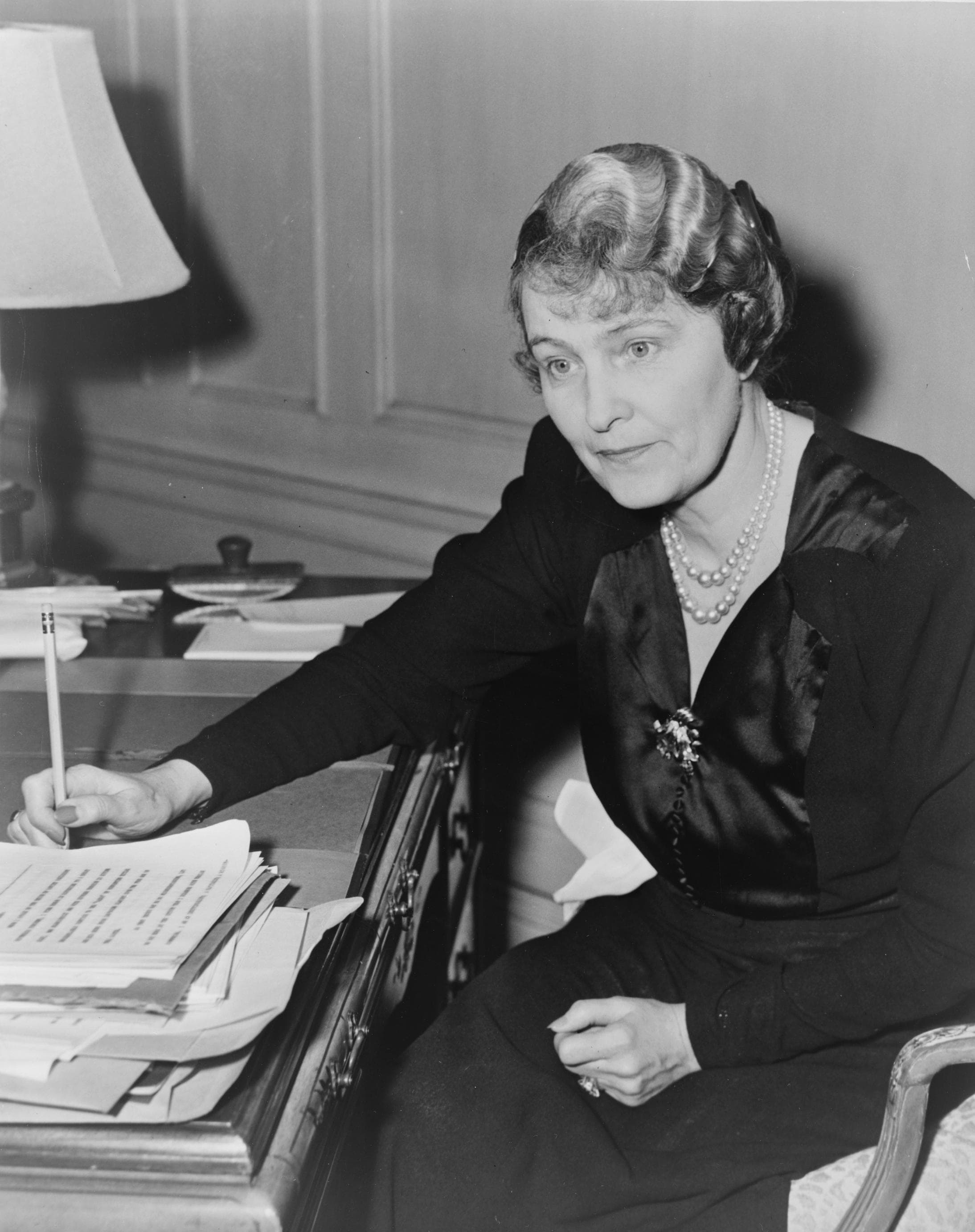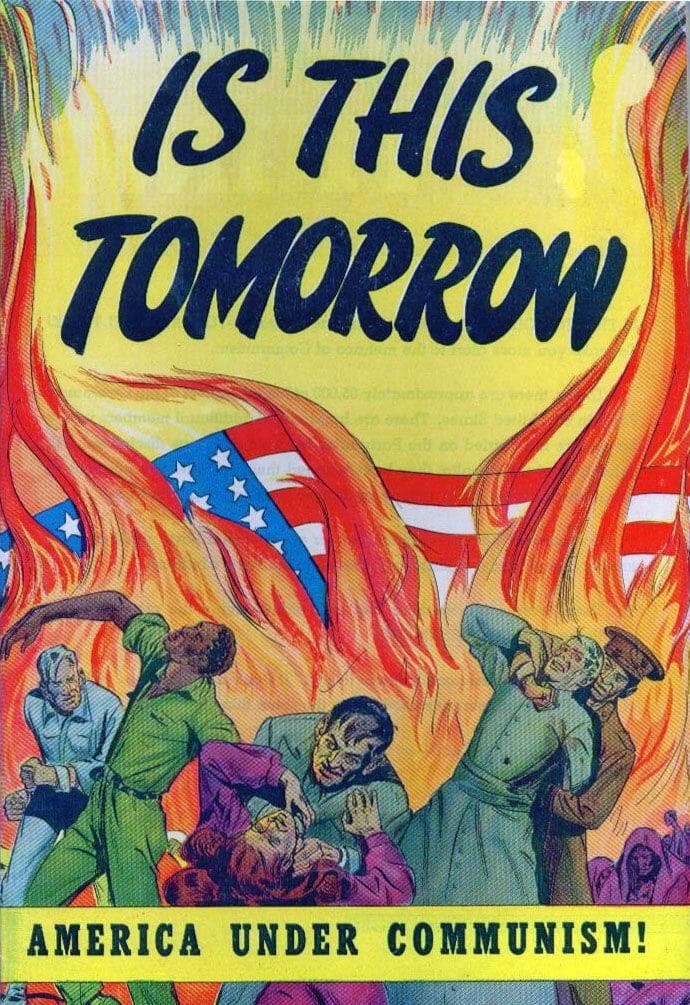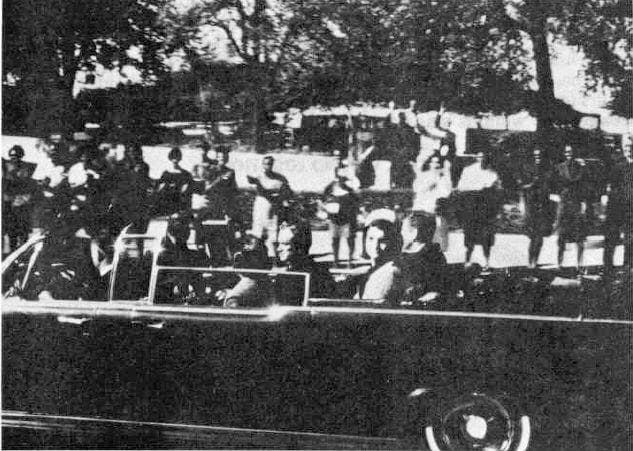-
(#7) Ayn Rand Testified About Communism In Hollywood In 1947
When Ayn Rand appeared before the House Un-American Activities Committee in October 1947, she recounted her background and her time in Russia before answering questions about communist propaganda in Hollywood. She specifically addressed whether or not the film Song of Russia accurately portrayed life there.
The 1941 film told the story of a US composer, John Meredith (Robert Taylor) visiting Russia and falling in love with a peasant girl, Nadya (Susan Peters). It depicted life in rural Russia, which piqued the interest of the HUAC.
It also demonstrated the extent to which the Russian people were dedicated to their country and their government. In the midst of WWII, Nadya chose to stay and fight against Germany as they threatened her village, rather than escape to the US with her husband. John vows to stay by Nadya's side, but in the end they take their Russian devotion to the US.
Rand testified that Song of Russia presented a much more positive and free Russia than she remembered. In the film, people were happy, dancing, well-fed, and so well-off they owned things like radios.
Rand reported none of that was indicative of the Russia she remembered. Rand's overall opinion of the film was that "the terrible thing is the carelessness with ideas, not realizing that the mere presentation of that kind of happy existence in a country of slavery and horror is terrible because it is propaganda. You are telling people that it is all right to live in a totalitarian state."
-
(#4) The FBI Thought 'It's A Wonderful Life' Was Eerily Similar To The Russian Film 'The Letter'
An additional keen observation by the FBI involved a Russian movie from the 1930s called The Letter. The Letter had been released over a decade earlier and briefly made its way to the United States.
The plot involved a old, sympathetic inebriated man who takes a multi-day trip to the bank to ask for a letter of credit to pay his debts. On his way home, he loses the funds the bank gave him. The man takes his own life, only to have the letter returned to his wife some time later. The old man in The Letter was just like the old man in It's a Wonderful Life, Uncle Billy (played by Thomas Mitchell), who was unable to repay his debts as well.
-
(#2) According To Informants, The Film Tried To Discredit Bankers And Capitalism
It's not clear how much Ayn Rand contributed to the report on the film industry - it was 13,533 pages - but the FBI definitely consulted with her when producing it. When it came to It's A Wonderful Life, the FBI concluded it "was a rather obvious attempt to discredit bankers by casting Lionel Barrymore as a 'scrooge-type' so that he would be the most hated man in the picture."
By making capitalism seem unappealing and unpleasant, the film had to be communist propaganda. The movie could have shown the banker, Mr. Potter, as simply following mandates of the State Banking Examiners when it came to making loans, according to the FBI.
-
(#5) Frank Capra Had More Than One Film On The FBI's Left-Wing List
Frank Capra was under suspicion for more than It's a Wonderful Life. His 1939 film Mr. Smith Goes To Washington was viewed as socialist in nature. The plot of Mr. Smith Goes To Washington involves a man named Jefferson Smith, again played by James Stewart, who takes a vacant spot in the US Congress only to find Washington, D.C. full of corruption.
Mr. Smith is a young, idealistic man who is persuaded to fight the system, ultimately winning out against by staging a long filibuster. Politicians were upset at the negative portrayal of American politics and called for the film to be banned, calling it communist and anti-American.
Capra's 1936 movie Mr. Deeds Goes To Town was also cited as suspect because the title character, Mr. Deeds (played by Gary Cooper) was sympathetic to the underprivileged.
-
(#9) Ayn Rand Was Thought To Be An Expert On Russian Life
As the House Un-American Activities Committee and the FBI investigated Hollywood and the film industry, they enlisted experts. Rand was a screenwriter when she arrived in the United States from Russia, where she was born in 1905. She worked for Cecil B. Demille in 1926, and was considered a film industry insider by the government.
She hadn't lived in Russia for years by the time the investigation started, but she was thought to be able to look at film and filmmakers with the scrutiny needed to identify communism and communists. Her book We the Living was published in 1936, and was an exposé of sorts on the inadequacies of the communist system.
-
(#3) The Film Encouraged Class Awareness And Class Conflict
In addition to making bankers look bad, It's A Wonderful Life exposed audiences to issues of class differences by "deliberately maligned the upper class, attempting to show the people who had money were mean and despicable characters."
That wasn't all. By showing the main character, George Bailey (played by James Stewart) as a sympathetic "everyman," the film made a "subtle attempt to magnify the problems of the so-called 'common man' in society."
New Random Displays Display All By Ranking
About This Tool
Ayn Rand is a famous philosopher, novelist, and communist in the 20th century. Her philosophical theories and novels created the objectivist philosophical movement. She also wrote several best-selling novels such as The Fountainhead and Atlas Shrugged. Especially the philosophical novel "Atlas Shrugged" has a profound influence on the formation of American capitalist thought and political system.
Her political views strongly support laissez-faire capitalism and anti-centralism. She praised the American values of egoism and individualism, and also strongly disliked mysticism, religion, and completely opposed charity. The random tool introduced 10 things of Ayn Rand's influences.
Our data comes from Ranker, If you want to participate in the ranking of items displayed on this page, please click here.















